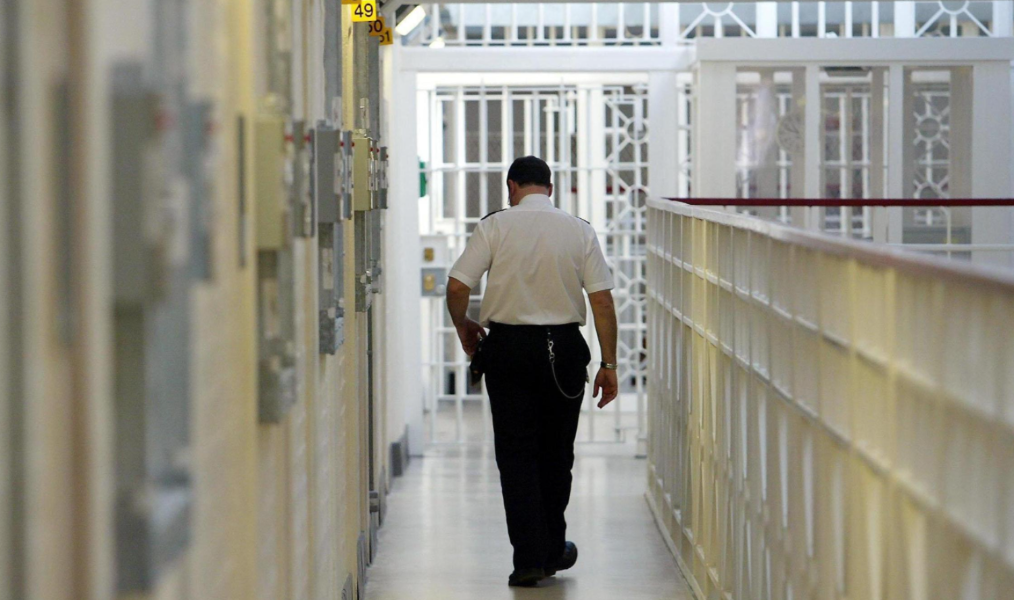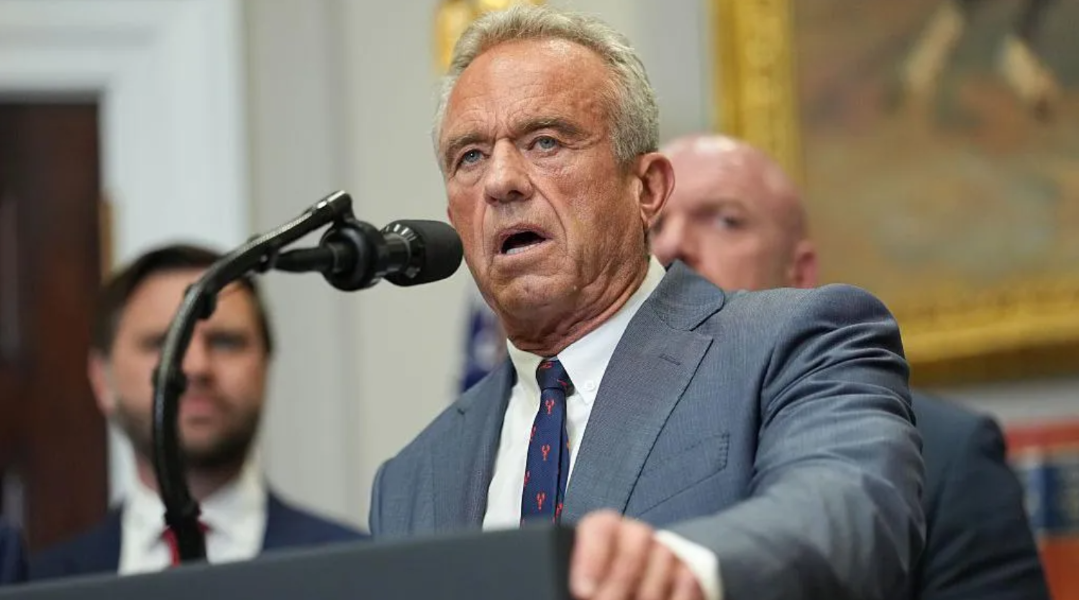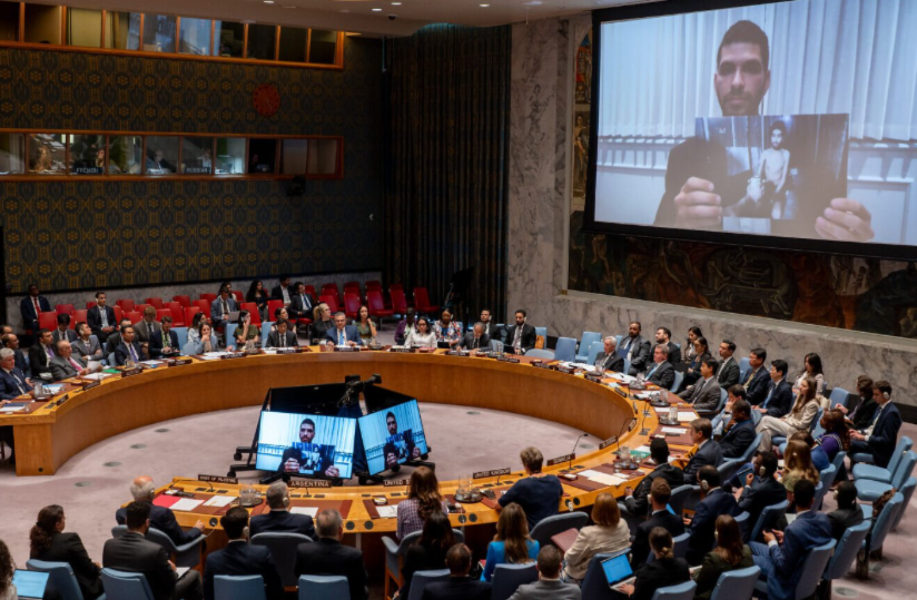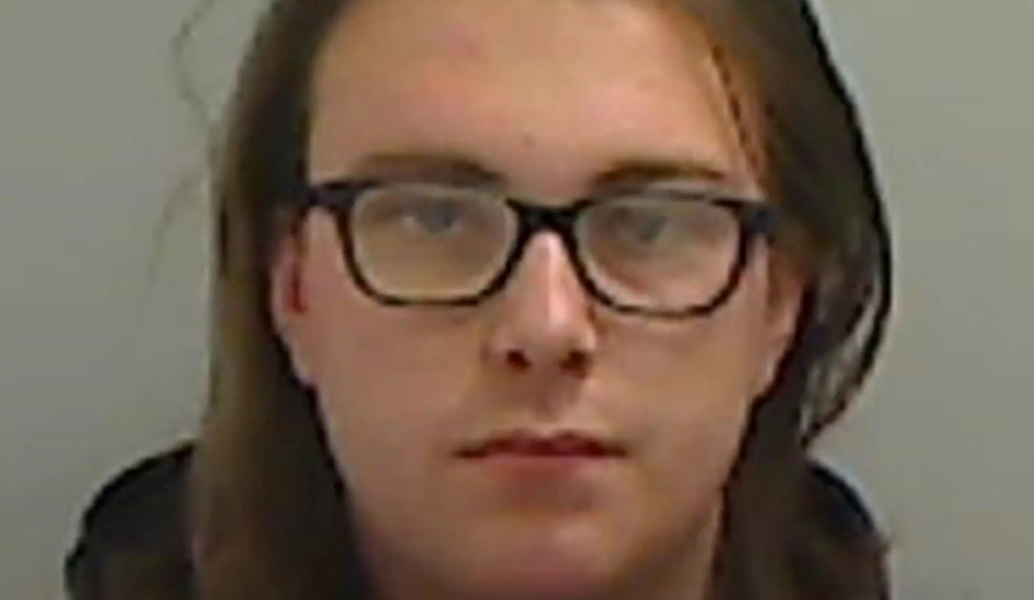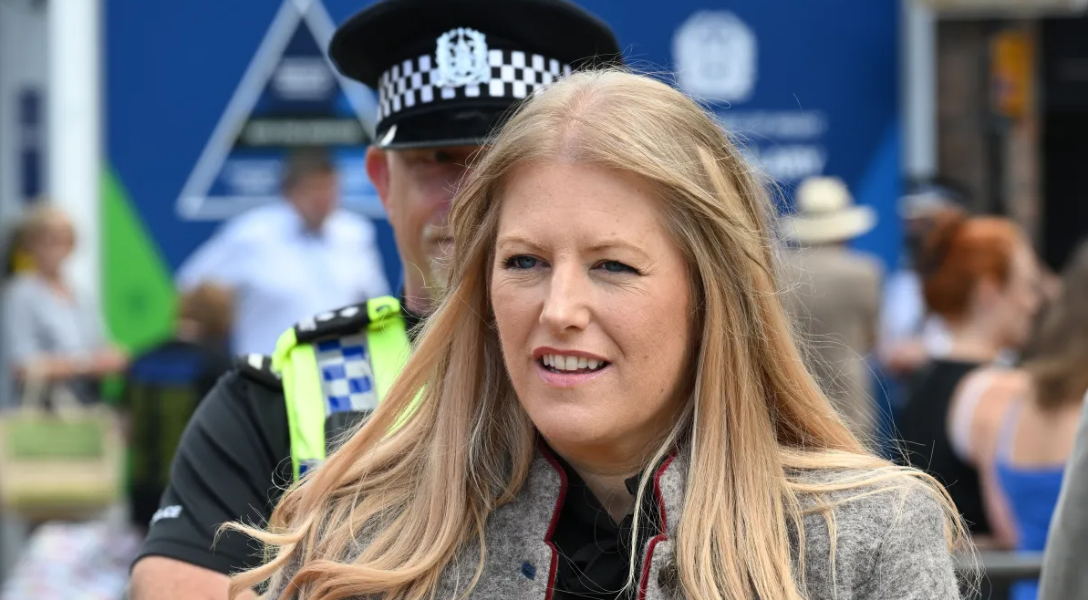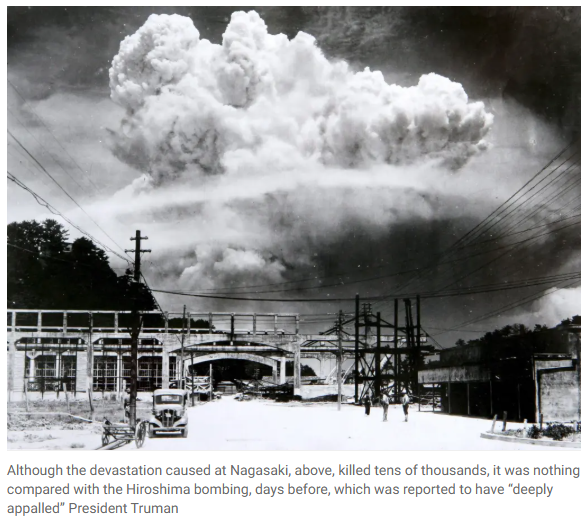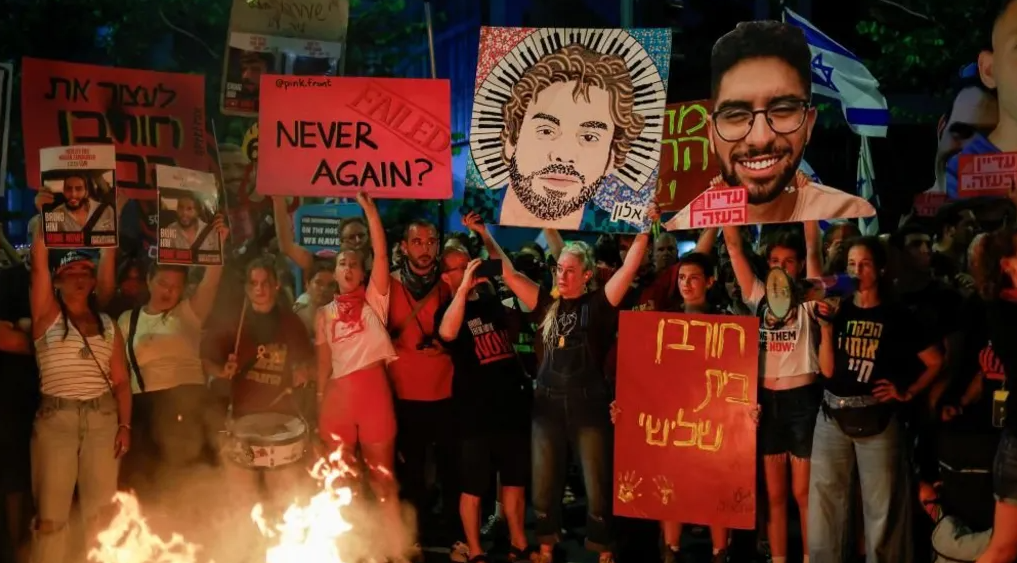-
Posts
10,827 -
Joined
-
Last visited
Profile Information
-
Location
Thailand
Previous Fields
-
Location
Thailand
Recent Profile Visitors
31,706 profile views
Social Media's Achievements
-

IDFs committing suicide due to committing War Crimes.
Social Media replied to Packer's topic in The War in Israel
Another post removed from the same member, trolling topic //closed// -

IDFs committing suicide due to committing War Crimes.
Social Media replied to Packer's topic in The War in Israel
@Packer a post containing pure misinformation and misrepresentation of the facts has been removed. 5. You will not use ASEAN NOW to post any material which is knowingly or can be reasonably construed as false, inaccurate, invasive of a person's privacy, or otherwise in violation of any law. Topics or posts deemed to be scaremongering, deliberately misleading or which deliberately distort information will be removed. -

Middle East Israel Masses Troops Near Gaza as Ground Invasion Looms
Social Media replied to webfact's topic in World News
Thread clean up. A bunch of posts removed. Please keep the discussion within the forum rules: 9. You will not post disruptive or inflammatory messages. You will respect other members and post in a civil manner. Personal attacks, insults or hate speech posted on the forum or sent by private message are not allowed. 15. You will not discriminate or post slurs, degrading or overly negative comments on the basis of race, gender, age, religion, ethnicity, nationality, disability, medical history, marriage, civil partnership, pregnancy, maternity, paternity, gender identity, sexual orientation or any other irrelevant factor. The topic is: Israel Masses Troops Near Gaza as Ground Invasion Looms -
Prison Staff Warn Chaotic Early Release Schemes Risk Public Safety and Collapse of Probation Services An overwhelming majority of prison and probation officers have condemned government emergency early release schemes, warning that hasty and poorly managed decisions are jeopardizing public safety and pushing the criminal justice system toward collapse. A major survey of nearly 500 prison and probation staff across England and Wales, conducted by the Skills for Justice organisation, found that 80 percent of workers disapprove of early release initiatives introduced to relieve prison overcrowding. Staff described the release schemes as “a shambles,” claiming they led to offenders being freed without tagging, supervision, or access to rehabilitation programmes. “They just viewed it as a fun ‘bonus’ of being out for a few weeks and unlawfully at large,” one prison officer said, recalling three offenders they had seen recalled to custody within days of release. The emergency measures began under the Conservative government in autumn 2023, allowing over 10,000 inmates to be released up to 70 days before their sentence’s end. The Labour government replaced this with a new plan allowing inmates to be released after just 40 percent of their sentence. By March this year, more than 26,000 offenders had been released under the updated scheme. Timetables for implementation were reportedly rushed, with serious consequences. One probation officer commented, “It was too rushed. It did not allow sufficient time or resources for prisoners to be released safely. People were not being tagged or monitored. The whole thing was a shambles.” The strain placed on frontline staff was evident. Eighty percent of respondents reported increased stress since the rollout of the schemes, with many warning that insufficient resources, mounting caseloads, and lack of planning had led to dangerous situations. “Workload pressures on probation are immense, and without the appropriate resources to manage all the prison releases, something will go wrong, and the public are at risk of serious harm,” another officer warned. More than 87 percent of those surveyed said the release policies had derailed vital rehabilitation and training activities inside prisons, weakening efforts to reduce reoffending. “This has produced a revolving door of offenders not adequately prepared for release and who reoffend at a higher rate,” a prison worker noted. There was some support for reforms modeled on the U.S. system, with 60 percent backing proposals to tie early release to good behaviour and participation in rehabilitation or training. These plans, inspired by Texas’s prison model, would allow release after serving a third of a sentence for compliant, non-violent inmates. Staff said such a system would help them better plan for inmate reintegration. However, 40 percent wanted early release measures abolished altogether, citing the demoralizing effect on probation workers. “I started this role motivated and ready to do my job but as more and more pressure is placed on us, I feel myself breaking,” one officer said. “Numerous staff members are having to take stress-related sick leave, and I feel the organisation as a whole will collapse should this continue.” Tom Wheatley, president of the Prison Governors’ Association, urged the government to rethink its long-term strategy. “Successive governments have failed to invest in probation in the same way that they have failed to invest in prisons,” he said. “Recruitment and retention policies need to offer pay and conditions of service... that will not only attract high quality recruits but will also encourage them to stay.” Ian Lawrence, general secretary of Napo, echoed the sentiment, saying decades of neglect had left probation services carrying an unfair burden. “We cannot keep expecting probation officers to pick up the pieces,” he said. “We therefore need to ensure the long-term sustainability of the workforce by ensuring people are properly rewarded and supported to do their jobs.” Adapted by ASEAN Now from Source The Times 2025-08-08
-

Middle East Israel to 'Fully Occupy' Gaza: Hostage Safety Concerns Rise
Social Media replied to CharlieH's topic in World News
@WDSmart posts removed for your usual Zionist misinformation trolling. -
RFK Jr Scraps $500 Million mRNA Vaccine Program, Sparking Backlash from Health Experts US Health Secretary Robert F. Kennedy Jr has cancelled half a billion dollars in federal funding for the development of mRNA vaccines targeting viruses such as Covid-19 and the flu, igniting sharp criticism from public health officials and scientists. The $500 million cut will halt 22 ongoing projects overseen by the Department of Health and Human Services (HHS), including major efforts by pharmaceutical giants Pfizer and Moderna. These programs were aimed at developing vaccines for viruses such as bird flu, Covid-19, and other respiratory illnesses. The funding was originally administered by the Biomedical Advanced Research and Development Authority (BARDA), a division of HHS. Kennedy, a known vaccine sceptic, defended the move by claiming mRNA vaccines are more harmful than beneficial when used against respiratory viruses. “We reviewed the science, listened to the experts, and acted,” Kennedy said in a statement. “The data show these vaccines fail to protect effectively against upper respiratory infections like COVID and flu.” He added that the funds will be redirected toward “safer, broader vaccine platforms that remain effective even as viruses mutate.” Kennedy further argued that mRNA vaccines might be contributing to the evolution of new virus strains. “mRNA vaccines can help encourage new mutations and can actually prolong pandemics as the virus constantly mutates to escape the protective effects of the vaccine,” he claimed. However, medical experts strongly rejected Kennedy’s assertions, warning that the cancellation jeopardises national readiness for future pandemics. “This is the US turning its back on one of the most promising tools to fight the next pandemic,” said Dr Peter Lurie, a former official at the US Food and Drug Administration, in an interview with the BBC. Dr Paul Offit, director of the Vaccine Education Center at the Children’s Hospital of Philadelphia and one of the inventors of the rotavirus vaccine, described mRNA vaccines as “remarkably safe” and said they played a vital role in curbing severe Covid-19 infections. He disputed Kennedy’s suggestion that vaccines drive mutations, pointing out that viruses naturally mutate every year — with or without vaccines — as seen in the case of influenza. “mRNA vaccines were critical in stopping the pandemic and saving millions of lives,” Dr Offit said. He also warned that the funding cancellation could leave the country in a “more dangerous” position should another pandemic emerge, noting that mRNA platforms offer faster development timelines compared to traditional vaccines. BARDA confirmed that it would now focus its investment on vaccine platforms with what it called “stronger safety records and transparent clinical and manufacturing data practices.” Traditional vaccines, which often use inactivated viruses to trigger immune responses, are being prioritized under this strategy. In contrast, mRNA vaccines function by instructing human cells to produce proteins that simulate a viral infection, prompting the immune system to build defenses. Kennedy’s latest decision is part of a broader overhaul of federal vaccine policy since he assumed office. In June, he dismissed all 17 members of the committee responsible for advising on national immunization schedules, replacing them with individuals known for casting doubt on vaccine safety and efficacy. He has also removed the Covid-19 vaccine from the Centers for Disease Control and Prevention’s immunization recommendations for healthy children and pregnant women. Despite Kennedy’s controversial stance, Moderna and Pfizer’s mRNA vaccines were thoroughly tested in large-scale clinical trials and have consistently been found to be both safe and effective, health authorities say. The ongoing debate has raised concerns about the future of evidence-based vaccine policy in the United States as it faces ongoing and emerging public health threats. Adapted by ASEAN Now from Source BBC 2025-08-07
- 58 replies
-
- 10
-

-

-

-
UN Silence Condemned as Israeli Officials Demand Action on Hostages in Gaza A harrowing session of the United Nations Security Council unfolded in New York this week as Israeli officials and relatives of hostages held by Hamas issued powerful appeals for international action. Ilay David, brother of hostage Evyatar David, addressed the council via live video, delivering a searing condemnation of what he called the body’s inaction in the face of “monstrous cruelty.” Brother Of Evyatar David—Israeli Hostage Still Held By Hamas—Speaks To UN Security Council “Every moment of delay is a step closer to a final, tragic outcome. We all have a responsibility,” he said, urging the Security Council and the broader global community to act decisively. “To the leaders of the world, to every member of this council and to the global community, your silence in the face of this monstrous cruelty is complicity.” David’s testimony came just days after Hamas released propaganda footage of hostages, including his brother Evyatar and another captive, Rom Braslavski, who appeared gaunt and malnourished. One chilling scene showed Evyatar being forced to dig his own grave. “My father cannot sleep and my mother has not stopped crying,” Ilay told the council. He implored the UN to “recognize that this is a matter of life and death requiring urgent medical intervention.” Israeli Foreign Minister Gideon Sa’ar flew to New York to speak at the emergency session, which was called at Israel’s request. Support for the meeting came from the United States, France, and the United Kingdom. Sa’ar did not mince words, especially when addressing remarks made by Dmitry Polyanskiy, Russia’s deputy envoy, who said Moscow mourned all victims but blamed Israel for the absence of a ceasefire. “It was really funny to hear the Russian Federation representative, after three and a half years of a brutal invasion, brutal war in Ukraine and bombardments on civilian population in Kiev and other places, speaking here the way he spoke,” Sa’ar said. He also accused the Palestinians of adopting propaganda tactics from the Soviet era. “The Palestinians learned propaganda from you—from the Soviet era, and you were good teachers,” he said to Polyanskiy. “The Palestinians invented terrorism as a way to promote their means, and it includes all Palestinian factions.” Describing Hamas as “pure evil,” Sa’ar said the group had orchestrated a campaign of “starvation” and “torture” against the hostages. He denounced their use of the captives in what he called a “deliberate and well-planned, sadistic propaganda campaign,” citing the stark contrast between the skeletal hostages and a “well-fed terrorist” whose “thick, meaty arm” appeared in the video. Addressing accusations that Israel was to blame for the humanitarian crisis in Gaza, Sa’ar defended his country’s actions. “Israel has been facilitating huge amounts of aid into Gaza since the beginning of the war,” he said. “The truth must be told: Hamas sadistically starves our hostages, while the terrorists enjoy meat, fish and vegetables.” He further noted that under the terms of a ceasefire deal in November 2023, the Red Cross was to be allowed access to assess hostages and provide medication—access he said Hamas has denied. “Terror states and organizations kidnapping civilians is not just our problem,” Sa’ar warned. “Today it’s Israel. Tomorrow, it’s you.” Sa’ar also condemned the international media for what he viewed as biased coverage. “I read the New York Times the day after Hamas released the distorted video of Evyatar David. I looked, but could not find Evyatar on the front-page,” he said, criticizing the outlet for previously featuring images of supposedly starving Gazan children, later found to have preexisting conditions. “We are witnessing the twisted anti-Israel agenda of so much of the global media” and UN Secretary-General António Guterres’s “deafening silence” on the hostages. Outside the chamber, Sa’ar told reporters his mission was to “put the issue of the hostages front and center on the world stage.” He criticized last week’s two-state solution conference at the UN, hosted by France and Saudi Arabia, as having “assassinated the hostage deal and ceasefire,” arguing it gave Hamas incentives to prolong the conflict. U.S. interim ambassador Dorothy Shea echoed Israeli concerns, warning that “some have instead taken steps that embolden Hamas and undermine the negotiators’ efforts.” She described the previous week’s conference as an “unproductive publicity stunt” that “undercut the efforts of mediators and prolong the war.” Shea added, “These gifts to Hamas not only imperil the hostages. They also hurt the civilians of Gaza who continue to suffer.” Related Topic: Gaza Hostage Filmed Digging own Grave in Terror Tunnel Adapted by ASEAN Now from Source Forbes | UN Council Meeting Live 2025-08-07
-
Transgender Offender Jailed for Repeated Breaches of Court Order Using Female Aliases A transgender paedophile has been jailed after repeatedly breaching court-imposed restrictions by using female names online without notifying police. Luke Hardy, 24, who identifies as Zoe Hardy, was sentenced at Teesside Crown Court for persistent violations of a Sexual Harm Prevention Order (SHPO) designed to limit online activity and prevent further offences. Hardy, who was referred to with female pronouns during the hearing, was originally given a community order in 2022 after being convicted of three counts of making indecent images of children. Some of these images were found to be of the most serious category and were located on Hardy’s mobile phone. As a result, a SHPO was put in place to monitor and restrict Hardy’s online presence. Despite this, Hardy was found to have deleted the internet history on his phone in 2023, including removing dating apps, an action that directly contravened the terms of the court order. Later that same year, Hardy registered on an adult website using the alias “Lucy,” another breach, as this new identity had not been disclosed to the authorities as required. In interactions with police, Hardy explained the use of multiple names by claiming to be struggling with sexuality and gender identity, saying: “sometimes feeling like Luke, sometimes like Lucy.” The latest violation occurred in July when police carried out a home visit in Stockton. Hardy had by then been classified as a “high-risk sex offender.” Officers discovered that Hardy had again used an undeclared alias—this time “Zoe”—across multiple platforms, including a dating app, an email account, and a mobile game. Prosecutor Saba Shan told the court that Hardy’s failure to inform police about the use of this new alias constituted a further breach of the SHPO. Judge Richard Clews sentenced Hardy to eight months in prison for the most recent breach, adding an extra month by activating part of a previous suspended sentence. He told Hardy: “It is appropriate to describe the breaches of the sexual harm prevention order as persistent and deliberate.” The judge also clarified that the sentence was passed on the basis that no additional harm had been caused to others as a result of the violations. Hardy’s case has highlighted the complexities and enforcement challenges associated with monitoring offenders who assume multiple or changing identities. Despite the repeated breaches, authorities noted no new contact offences, though Hardy’s actions were treated as a serious and ongoing threat requiring custodial punishment. Adapted by ASEAN Now from Source The Telegraph 2025-08-07
-

UK Times Investigation: Labour Group Cash for breakfast access
Social Media posted a topic in World News
Labour-Linked Group Offered Private Access to Senior Figures for Sponsorship Fees, Times Investigation Reveals A political storm is brewing around Labour’s ties to a lobbyist-run think tank after a Times investigation revealed that businesses have been offered the chance to pay nearly £9,500 to meet senior Labour figures in private. The Labour Infrastructure Forum (LIF), a group set up to generate policy ideas to "get Britain building and growing again", has been offering sponsorship packages since last summer that include exclusive access to high-ranking Labour individuals. One such package, priced at £7,850 plus VAT, offered a "private breakfast/dinner roundtable with an influential Labour figure". Other deals included a £11,750 plus VAT “parliamentary panel event with key policymakers” and up to £30,000 plus VAT to sponsor a Westminster drinks reception. The day-to-day operations of LIF are handled by lobbyists and guided by an advisory council including Labour MPs Kirsteen Sullivan, Bill Esterson and Mike Reader, former cabinet minister Ruth Kelly, and Lord McNicol, Labour’s former general secretary. It has also previously involved Baroness Blake of Leeds, a current government whip in the Lords. Though filled with Labour voices, the group is not officially affiliated with the party, meaning it is not bound by lobbying regulations or party transparency requirements. The Times asked for a breakdown of sponsors, payment amounts, and Labour figures involved, but LIF declined to provide full details. A spokesperson stated that sponsorship funds were used to cover costs and claimed that “any LIF activity that is supported by sponsors will be made publicly available at the time and in our annual report, as is common across the industry.” Despite the lack of formal ties, Labour was also found to have offered lobbyists a £15,000 plus VAT “commercial partnership” last winter, granting access to MPs at party receptions. Companies were told the payment wouldn’t need to be declared as it was “not a recordable donation.” Electoral Commission rules require parties to disclose any donations over £11,180, but Labour insists such commercial payments fall outside this requirement. “Commercial partnerships at events are a longstanding practice and have no bearing on party or government policy,” a party spokesman said. “The party fully complies with all rules relating to the reporting of donations.” LIF director Gerry McFall, who also works for lobbying firm Bradshaw Advisory, was recorded by undercover reporters discussing his strong connections with Labour ministers. He cited a meeting arranged for a Bradshaw client in the nuclear industry with Business Secretary Jonathan Reynolds during last year’s Labour Party conference. However, no such meeting appears in official records. While party conference meetings don’t always require disclosure, if conducted in a ministerial capacity, they should be declared. Reynolds declined to comment. The Electoral Commission confirmed it is reviewing the evidence. Concerns about the influence of lobbying in Westminster remain high, with many urging tighter laws. While the UK’s Office of the Registrar of Consultant Lobbyists monitors external lobbyists, it doesn’t require disclosure of specific meetings or apply to in-house or think tank operations. The watchdog admitted there are “significant deficiencies” in current lobbying legislation and is considering the case. Following inquiries by The Times, LIF’s website was updated with a sponsorship policy declaring it does not lobby on behalf of sponsors. A reference to the group as a “network including Labour policymakers” was replaced with “think tank.” A spokesman stressed that LIF is an “independent left-leaning think tank” and “not engaged in consultant lobbying,” saying it operates legally and transparently. “We’re trying to boost UK growth and create well-paying jobs around the country,” he added. Bradshaw Advisory, meanwhile, said it had “complied with the law and disclosure rules at all times” and helped clients meet “politicians and senior civil servants” as part of routine public affairs work. Adapted by ASEAN Now from Source The Times 2025-08-07 -
M&S Apologises After Trans Employee Causes Lingerie Department Controversy Marks & Spencer has issued an apology to a mother whose teenage daughter reportedly felt "distressed" after being approached by a transgender employee in the lingerie section of one of its stores. The incident, which took place in March, has reignited debate over the balance between inclusivity and customer comfort in retail spaces. The mother, who has chosen to remain anonymous, described the event as upsetting for her 14-year-old daughter, who had been visiting the store to be fitted for a bra. She claimed that while the transgender shop assistant was “polite”, the situation was nonetheless “completely inappropriate.” “Imagine her horror, then, when the person to approach us and ask if we needed help was a transgender ‘woman’, i.e., a biological male,” she wrote in a formal complaint to the company. “This is obviously the case: he is at least 6ft 2in tall... My daughter recoiled, so I politely declined the offer and we left immediately. She was visibly upset and said she felt ‘freaked out’.” In response, a customer service representative from M&S wrote the following day, offering an apology. “Thank you for reaching out to us and sharing your experience,” the company said in an email. “We deeply regret the distress your daughter felt during her visit to our store. We understand how important this milestone is for her, and we are truly sorry that it did not go as you had hoped.” The retailer further stated that it takes such concerns “very seriously” and promised to ensure that during any future visits, the daughter would “receive assistance from a female colleague.” The company added, “We want to make this experience as comfortable and positive as possible for her. Please let us know when you plan to visit again, and we will make the necessary arrangements.” The mother, however, did not find the response adequate. She argued that M&S’s reply “fell significantly short of the response that was required to satisfy me that M&S takes seriously the safety and dignity of women and girls.” While she acknowledged that the retailer admitted “this colleague is not female,” she said that alone was “not sufficient to offer just my daughter the protection of not being approached by him.” She requested a formal policy ensuring that transgender staff would not approach young women in the lingerie department. It is understood that the employee in question works across multiple departments and is not involved in bra fittings. The situation unfolded just weeks before a landmark ruling from the UK Supreme Court, which affirmed that under equality law, “sex” refers specifically to biological sex. The ruling clarified that transgender women can be legally excluded from women-only spaces. Fiona McAnena, director of campaigns at the human rights organisation Sex Matters, weighed in on the incident, criticising the retailer’s handling of the situation. “This is what happens when a business centres the feelings of men who identify as women, even at the expense of their own customers. It is entirely inappropriate for a man to approach a teenage girl in a lingerie department. Being dressed in women’s clothes doesn’t change that. It’s extraordinary that a man would regard himself as entitled to do such a thing; most men know how unwelcome that would be,” she said. “M&S needs to rethink its priorities and remember that women and girls have rights too, and that this man should not be permitted to hang around in the women’s underwear department as a matter of common decency,” McAnena added. In a statement, a spokesperson for M&S said: “We want our stores to be inclusive and welcoming places for our colleagues and customers. We have written to this customer and explained that our colleagues typically work across all departments in our stores and customers can always ask to speak to the colleague they feel most comfortable with.” Adapted by ASEAN Now from Source The Telegraph 2025-08-06
-

UK Police Commissioner: Minister Tried to Silence Me Over Riots
Social Media posted a topic in World News
Police Commissioner Claims Minister Tried to Silence Her Over Riots and Immigration Link A senior police figure has alleged that a government minister pressured her to retract a statement linking last summer’s riots to mass immigration. Donna Jones, the Police and Crime Commissioner for Hampshire and the Isle of Wight, says the intervention came shortly after she publicly suggested that “mass uncontrolled immigration” was among the causes of the unrest following the Southport attacks. Jones said she received a call from a newly appointed minister, whose identity she chose not to reveal. According to her, the minister insisted: “You and I both know this has nothing to do with immigration,” and urged her to take down her statement. She refused, telling the minister they were wrong. “Last summer I issued a statement urging the government to address the root causes of why people are protesting,” Jones said. “After I put my statement out, on the same day, a Labour government minister called me and asked me to retract my statement saying it was misleading the public and causing community tensions. I told them that they were wrong and it was absolutely why people were protesting.” The commissioner warned that unless the government addresses the issue of immigration more decisively, the UK could see a deterioration in law and order. “Those are not scenes we ever want to see again,” she said. “These protests will continue to happen unless the government takes serious and tangible action to stop the flow of immigration into the UK.” Jones also expressed concern over the frequency of anti-migrant demonstrations and their potential to escalate. “With more protests planned for August, and no sign of an imminent solution from the home secretary or the prime minister, I fear parts of the country risk falling into a state of lawlessness,” she said. “People continue to be concerned about the number of people arriving on our shores daily and the impact this is having on local services. Community stability is a valid concern. And those who are not concerned are rightly anxious about the unrest on their streets. This won’t stop until people’s fears are addressed.” In addition to concerns over community unrest, she warned that the police are at breaking point. “Policing is stretched to the limit,” she said, noting that forces are expected to maintain public order, meet neighbourhood policing targets and cut knife crime and violence against women and girls — all at once. Jones, who is also the Conservative candidate for mayor of Hampshire and the Isle of Wight, made her original remarks while chair of the Association of Police and Crime Commissioners. Her comments were met with strong criticism, including from former chief crown prosecutor Nazir Afzal, who called them “totally unacceptable” and said she appeared to be “justifying rioting and criminality that police officers are bravely having to deal with right now.” In response to the backlash, Jones issued a second statement, reiterating her support for the police and condemning illegal behaviour, but she refused to withdraw her original claims. “While I do not justify any violence, there is value in understanding the views of those attending rallies who feel strongly but don’t cause disorder,” she said. “I’ve spoken to people from both sides of the spectrum and the only way to stem the tide of violent disorder is to acknowledge what is causing it.” She also reported that protests had been consistently taking place in her region, including three in one weekend and a continuous weekly protest at a hotel in Portsmouth housing migrants since last summer. The Home Office has been contacted for comment. Adapted by ASEAN Now from Source The Times 2025-08-06 -
A Deadly Mistake: How Overuse of Tourniquets Is Crippling Ukraine’s Soldiers Tourniquets, once hailed as a revolutionary life-saving tool on the battlefield, are now being blamed for a tragic surge in preventable amputations and deaths among Ukrainian soldiers. According to leading military surgeons, widespread misuse of the device in Ukraine has created a “cult-like” dependence that is leaving thousands of young men permanently disabled. Captain Rom A Stevens, a retired senior US Navy medical officer who has served in Iraq, Afghanistan, and East Africa, estimates that of the roughly 100,000 amputations performed on Ukrainian soldiers since Russia’s full-scale invasion in 2022, as many as 75,000 could have been avoided. “I’ve seen tourniquets that have been left on for days, often for injuries that could have been stopped by other methods. Then [the patient] has to have their limb amputated because the tissue has died,” he told The Telegraph. Tourniquets are tight bands used to stop catastrophic bleeding by cutting off blood flow, a last resort intended for life-threatening injuries. If applied correctly and for a short time, they can be invaluable. But left in place for longer than two hours, they begin to starve tissue of oxygen, resulting in irreversible damage and ultimately amputation. In the wars in Iraq and Afghanistan, where tourniquets became standard issue for Western forces in the 2000s, wounded soldiers could typically be evacuated by helicopter to surgical care within an hour. If a tourniquet turned out to be unnecessary, it could be quickly removed with no lasting harm. Ukraine presents a very different battlefield. With the skies thick with enemy drones and helicopters largely grounded, soldiers must be transported by land, often over long distances. These delays can extend well past the critical safe window for tourniquet use. According to Captain Stevens, the consequences are not limited to lost limbs. He noted a growing number of young Ukrainian men now requiring dialysis because, after a tourniquet is left on too long, the removal releases toxins from the dead tissue into the bloodstream, overwhelming the kidneys. Stevens, who has been volunteering in hospitals in Zaporizhzhia, Dnipro, and L’viv since the start of the invasion, said, “It has left a generation of men traumatised by unnecessary amputations.” Captain Stevens was involved in creating the U.S. military’s own guidelines on tourniquet use and now regrets that they didn’t stress enough the importance of determining whether one is truly necessary before applying it. He believes the success of tourniquets in previous conflicts has blinded many to their risks. “Their successful use in wars where rapid evacuation was possible has led to a ‘cult-like’ dependence on a tool that should be used much more sparingly,” he warned. Backing up his concerns is a 2022 study by Dr Vladyslav Yatsun, a Ukrainian military vascular surgeon, who found that just 24.6 percent of wounded soldiers arriving at hospitals with tourniquets had injuries that actually required them. “In all other cases, the use of pressure bandages was more appropriate,” the study concluded. As the war grinds on and casualty numbers rise, experts are calling for an urgent re-education of frontline medics and soldiers on when and how to use tourniquets. Without it, thousands more may face avoidable amputations, lifelong disability, and death—not from enemy fire, but from a well-intended device misused in the chaos of war. Adapted by ASEAN Now from Source Daily Telegraph 2025-08-06
-

Israel kills 74 in past day as trickle of aid trucks enter Gaza
Social Media replied to Chris.C's topic in The War in Israel
False and misleading claims from the OP about this number of deaths being daily and claims on western media. //Closed// 5. You will not use ASEAN NOW to post any material which is knowingly or can be reasonably construed as false, inaccurate, invasive of a person's privacy, or otherwise in violation of any law. Topics or posts deemed to be scaremongering, deliberately misleading or which deliberately distort information will be removed. In factual areas such as news forums and current affairs topics member content that is claimed or portrayed as a fact should be supported by a link to a relevant reputable source. -
Did Nagasaki bomber ‘miss’ on purpose to save lives? On August 9, 1945, Captain Kermit Beahan, bombardier of the B-29 carrying the plutonium bomb “Fat Man,” was tasked with ending one of the cruellest wars in history. Yet the bomb that destroyed Nagasaki did not fall in the city’s heart. Instead, it detonated 2.18 miles north, in the suburb of Urakami, near tennis courts owned by Mitsubishi’s managing director and close to Japan’s largest Roman Catholic cathedral. The surrounding hills absorbed much of the blast, sparing countless lives. A direct hit on central Nagasaki could have claimed 100,000 lives, but six months later, the death toll stood at around 38,000. Nagasaki had not been the intended target. The mission’s primary objective was Kokura, an industrial hub whose bombing was expected to cause an estimated 300,000 casualties. President Truman had ordered that the bomb must be dropped only if the target was visible. Weather planes reported clear skies over Kokura, but when Beahan reached his bomb sight, he refused to release the weapon. “Goddam to hell, no drop, no drop! I can’t see the goddam target!” he shouted over the intercom. Three times the B-29 made its run, and three times Beahan declined. With fuel running low and Japanese fighters approaching, the crew turned to the secondary target: Nagasaki. Even then, debate erupted on board about abandoning Truman’s visual-only order and dropping by radar. In the end, Commander Frederick Ashworth agreed to a radar drop, but as the plane neared the city, Beahan spotted a break in the clouds over Urakami. “I’ve got it. Believe it or not, I’ve got it. The stadium. There’s a hole in the clouds, I can see a target,” he said, laughing. Moments later, he released Fat Man manually, due to a technical fault, and the bomb exploded far from Nagasaki’s most densely populated areas. “Holy mother of Jesus,” he murmured, followed by a quiet vow: “Never again. Never, ever again.” It was his 27th birthday. The question has lingered for decades — did Beahan deliberately spare Kokura and intentionally shift the aim at Nagasaki? His son, Kermit Jr., insists his father followed orders: “Whatever Dad did, he did because a senior officer told him.” Yet evidence from weather archives and mission records casts doubt on claims of cloud cover at Kokura. President Truman, disturbed by the devastation in Hiroshima days earlier, may have used back channels to influence the mission, bypassing hardline commanders like General Curtis LeMay, who was angered by what he saw as Nagasaki’s “limited” destruction. We may never know whether Beahan’s decision was an act of quiet defiance or the result of unseen orders. But one fact is certain — Kokura was spared, and by dropping short of central Nagasaki, Beahan’s actions, intentional or not, saved hundreds of thousands of lives while still ending the war’s final chapter. Adapted by ASEAN Now from Source The Times 2025-08-05
-
Hostage Footage Sparks Global Outcry as Red Cross Demands Access Western leaders have condemned disturbing new footage showing emaciated Israeli hostages in Gaza, as the International Committee of the Red Cross (ICRC) renewed its urgent plea for access to those still in captivity. The videos, released by Palestinian Islamic Jihad and Hamas, depict two young men—both abducted from the Nova music festival on 7 October 2023 during the Hamas-led assault on southern Israel—appearing frail, starving, and in visible distress. One clip, published Thursday by Palestinian Islamic Jihad, shows 21-year-old Rom Braslavski thin, weeping, and describing his dire situation. Two days later, Hamas released footage of 24-year-old Evyatar David, also skeletal in appearance. Israel says both men are among the 49 hostages still held in Gaza from the 251 originally kidnapped, a figure that includes 27 believed to be dead. UK Foreign Secretary David Lammy said “images of hostages being paraded for propaganda are sickening” and stressed they must be freed “unconditionally.” German Chancellor Friedrich Merz said he was “appalled” and reiterated that the release of all hostages is a “mandatory prerequisite” for any ceasefire between Israel and Hamas. French President Emmanuel Macron accused Hamas of “abject cruelty” and vowed that France would “continue to work tirelessly” to secure their release, restore a ceasefire, and facilitate humanitarian aid into Gaza. On Sunday, Israeli Prime Minister Benjamin Netanyahu appealed directly to the ICRC’s regional head, urging immediate involvement to deliver food and medical assistance to the captives. The ICRC said it was “appalled” by the footage, calling it “stark evidence of the life-threatening conditions in which the hostages are being held.” The organization reiterated demands for direct access to evaluate their condition, provide treatment, and connect them with their families. Hamas’s military wing, the Al-Qassam Brigades, said it would “respond positively” to any Red Cross request to supply food and medicine if humanitarian corridors were established on a regular basis and Israeli air strikes were halted during aid deliveries. At a rally on Saturday, the families of David and Braslavski declared, “Everyone must get out of hell, now.” In his video, Braslavski said he had gone without food and water, eating only three “crumbs of falafels” that day. He added that he could not stand or walk and was “at death’s door.” His family said, “They managed to break Rom,” and pleaded with Israeli and US leaders to secure his return. David, in his recording, claimed, “I haven’t eaten for days… I barely got drinking water,” and was seen digging what he described as his own grave. His family accused his captors of “deliberately and cynically” starving him in Gaza’s tunnels, describing him as “a living skeleton, buried alive.” The harrowing videos have intensified international pressure on Hamas and other armed groups holding hostages, while underscoring the growing humanitarian crisis inside Gaza. For the families, each passing day without resolution deepens the agony. As Macron said, the images reveal not only the urgent need for aid but also the depth of “abject cruelty” that must be confronted. Adapted by ASEAN Now from Source BBC 2025-08-05



.thumb.png.59631667ecf82c97db947523760c9cdd.png)






